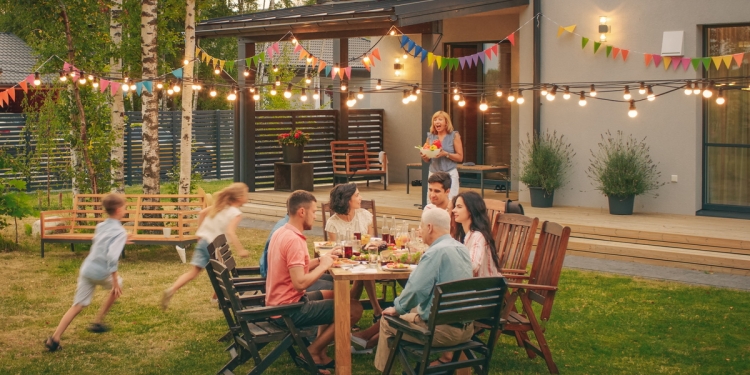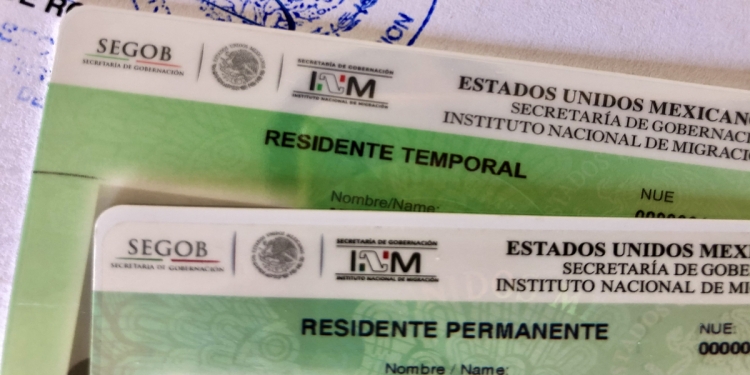Regardless of your life stage, moving to any foreign country will place some demands on you that you’re probably unaccustomed to if you’ve never lived abroad before.
After the eventful period during which you’ll deal with the immediate needs and logistics associated with your physical move and settling-in period, you’ll enter a more ordinary pace and rhythm of everyday life situations as your life in Mexico begins to unfold in earnest.
This ‘second-stage’ settlement period will present opportunities and challenges. Ensuring that your situations are underpinned by healthy routines, a sense of purpose, and connections to other people will speed your adaption period and help you to create a balanced and fruitful lifestyle in Mexico.
This article outlines the important need to find purpose and routines as part of everyday situations, and also highlights some common risks to help you spot any potential difficulties.
Forming regular routines
How your daily routines begin to unfold will depend upon your life stage, the intentions you set out, and your lifestyle priorities. Routines during the first few months of your settling-in period will likely revolve around practical logistics that support your move; however, when those matters are discharged, more ‘mundane’ matters will take precedence.
Your daily routines are likely to vary depending upon your life stage and circumstances, for example:
If you are retired
You might have a significant amount of spare time to fill; or you might have specific interests and activities you intend to engage with that fill that time. Some retirees arrive and explore for ways to get involved locally, and some might also start a business or begin working for local companies or non-profit organizations to share their expertise, life experiences, and knowledge.
If you’re arriving as a couple without children
You might engage with specific interests you each have separately, or together, or a mixture of both.
Although the issue of finding strong routines might seem inconsequential at first, one of the key dangers a couple faces is that if one or the other is unable to settle into a regular routine —and find activities of interest to them— the move to Mexico can quickly become barren.
This is especially true if the other partner in the relation does have a regular routine and interests and is enjoying Mexico and can happen, for example, if one partner has a job, work project, or finds integration natural, and the other doesn’t; the situation can be exacerbated by language barriers. See the section below about spotting risks and pitfalls for additional insights about this.
If you’re arriving as a family or a parent with minor children
Your routines are likely to be primarily formed around the children’s daily needs: schooling, and other social and scholastic matters are likely to take up a great deal of time and energy.
If your children are growing older, it’s sensible to think about how your routines will evolve when they finish school/college, and how your priorities and routines will respond to those changes.
If you arrive in Mexico as a single person without children
Your routines will likely be based entirely on the lifestyle intentions you set out with as part of your move to Mexico, that may include a retirement lifestyle, a work/project lifestyle, or combination of both.
Finding purpose in everyday situations
Regardless of your situation and life stage, you’ll need to make a conscientious effort to build new routines —daily, weekly, and monthly— as an integral part of your settling-in period when you move to Mexico.
Routines help to provide focus and are also the anchors that help to give life situations a purpose, and thus motivate you to engage more meaningfully in your everyday activities and pursuits.
Having purpose also mitigates potential risks associated with an absence of routines and purpose; unchecked, these can spiral downward and become detrimental to yours, your partner’s, or family’s well-being.
Social connections are key anchors
Making new friends, forming new associations, and getting involved in local community groups and activities comes naturally to some people; and for those with jobs, children, or work projects to do here, those activities can provide solid daily routine structures and contacts —professional and social— which in turn support their everyday life situations here in Mexico.
However, not everyone is naturally adept in the art of forming new social connections or may not have the formal structures that workplaces, schools, and other working groups provide as a primer and platform for making new friends. The task becomes even more difficult if your Spanish language skills are not well-developed.
When you move to Mexico, it’s worthwhile taking some time to consider how you will respond to the matter of developing your human connections here, and consider what efforts you personally need to make to discover new social circles and cultivate acquaintances and friends within those—perhaps from ‘square one.’
Human connections, that include acquaintances, family, friends, colleagues, and associates, are a key support mechanism because they help to provide practical, social, and emotional support to us every day; and while these are important wherever you live, they take on additional importance when you have recently moved to a foreign country and you may find yourself needing to recreate networks of connections, people, and groups—possibly from square one.
As you plan your move and set-out your intentions, consider how you will cultivate the new connections that will play an important role in your everyday situations in Mexico—and might well become a determining factor of how well you settle into and enjoy Mexico as a place to live.
Further insights about cultivating social connections
Routes to help cultivate your social circles in Mexico
Pitfalls in the absence of purpose and routines
It’s worth touching on the matter of common pitfalls that can appear when you don’t have regular routines to engage in, you or someone close to you lacks purpose, and/or develops too few human connections when you or they come to Mexico to live.
Being mindful of these pitfalls may help you to spot warning signs that can point to the emergence of situations which can undermine your original plans and intentions.
Here are some key situations to be mindful of, based on experiences of some people who moved to Mexico.
Lack of social connections
Neglecting to cultivate social and community connections can quickly lead to isolation, and depression. Depression can lead to abuse of addictive substances including alcohol and drugs—and this, in turn, limits your ability to socialize properly and develop wholesome routines and new human connections, creating a downward spiral that can be hard to break out of if goes unnoticed.
Vices and addictions
Limited social circles and/or closed-group communities can sometimes be a good breeding ground for a gradual but certain progression to alcoholism, and other substance abuse.
This seems especially prevalent among people with lots of spare —often barren— time on their hands. Regular rounds of social events and dinner parties that are heavily drenched with alcohol can unwittingly facilitate alcoholism by stealth.
Alcoholism is perhaps one of the biggest hidden threats to foreign residents in Mexico who lack strong daily routines and/or clear purpose as they cultivate their life situations here.
Partners adapting to Mexico
When couples move to Mexico together, the move might be advocated, and thus propelled, more strongly by one of the two partners in the relationship—and when this happens the dominant influencer will often make a greater effort to integrate, establish routines, and find purpose than the other.
If this disequilibrium continues, living in Mexico can quickly evolve into an inhospitable experience for the partner who is not integrating well, and that can put tremendous strains on the relationship. One partner may summarily decide that they want to return to their home country, leaving the other to contend with the substantial issues that that type of unilateral decision would entail.
It’s especially problematic if one of the partners is in Mexico on a defined work contract; but can be equally devastating to a retired couple, one of whom adores Mexico and doesn’t want to leave, and another who believes that they are unable to adapt and integrate.
It’s worth reading our article about considering your motivations and intentions for moving to Mexico in the first place, and talking candidly with your partner about your shared desires, interests, and aspirations vis-à-vis moving to Mexico.
Being open and receptive to the other’s concerns or incertitude can minimize the possibility of critical situations —of type that can break plans and relationships— from developing in the first place.
If issues emerge after you arrive in Mexico, being cognizant of the potential difficulties can help a couple to respond constructively, and exercise flexibility and understanding of each other’s needs.
Children adapting to Mexico
Being mindful of family members who might move to Mexico with you, particularly children, and especially in the early months after your move to Mexico, is important.
Individuals respond to material changes in their lives in distinctive ways, and a move to a foreign country is perhaps one of the most materially significant changes that we can experience.
Children, especially younger children, tend to be the most adaptable, but some children might find the change hard to contend with, and adolescents and young adults may find it hard to grapple with the social, cultural, and language changes that a move to Mexico will bring to their lives.
The better private schools in Mexico will be mindful of families’ needs when they have moved here from abroad and will have support mechanisms in place to help parents and children cope, as well as to help and encourage them to adapt and integrate.
Mitigating the risks as you settle-in to Mexico
The situations described above are the most typical encountered by foreign residents in Mexico; there are others, and while you can never eliminate all risks, they can be mitigated through some forethought, planning, and self-awareness.
Here are some guiding tips:
Clarity of purpose
Be clear about your intentions for moving to Mexico. Define those intentions, know your priorities, and compose a plan—if you have a partner or family, be sure they are involved and engaged in every aspect of that plan.
Make an effort to integrate
After dealing with the logistics of moving and settling-in, make a determined effort to build and develop strong daily routines and find purpose in your Mexico lifestyles, regardless of your life stage.
Make friends
Invest earnestly in the effort it requires to develop local connections and associations with others when you arrive in Mexico; avoid becoming isolated or only having limited circles of friends.
Speak Spanish
Learn or improve your Spanish language skills; the importance of being able to converse in Spanish everyday cannot be underemphasized and ought not to be underestimated.
Be mindful of yourself and others
Spot the signs —in yourself, and your loved ones if they move with you— of isolation and depression and the vices that often accompany people if one or both those afflictions takes hold; provide support to those near you and seek professional support if you need it.
Bring people along
As you move to Mexico and begin to settle-in, be mindful of your partner’s and family’s needs and any troubles or doubts they might be experiencing as they learn to adapt to a new country and an unfamiliar environment; be prepared to flex and respond constructively to support them.
Further research and resources
Mexperience offers you a comprehensive online resource of information and local knowledge to help you discover Mexico, explore choices, find opportunities and plan a new life in Mexico.
- Articles about lifestyle planning in Mexico
- Approaches to choosing or changing your Mexico lifestyle
- Making friends and cultivating social networks
- Adapting and settling-in to your lifestyle in Mexico
- Latest articles about lifestyles in Mexico
- A regular Mexico Newsletter you can subscribe to for free












